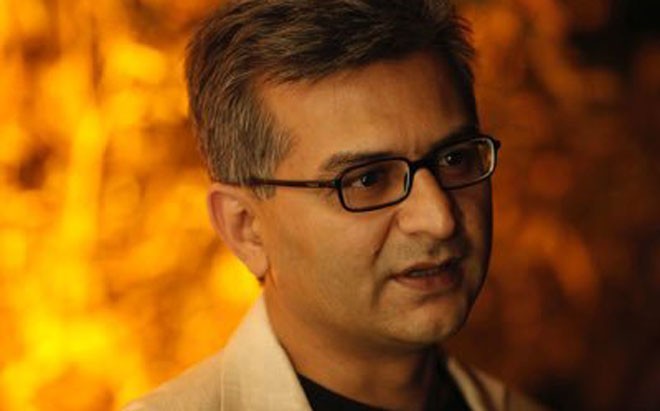
-- Interview with Hasan Zaidi, journalist, filmmaker & director KaraFilm Festival

The News on Sunday: How do you view the entire ‘ban’ debate and the ‘anti-national versus national’ rhetoric we have been hearing for the past few months across India and Pakistan? Do you believe it is all media-driven? In India, we hear stories of Supreme Court making it mandatory for movie theatres to play their anthem before the start of a film; and in Pakistan, we see the DVD shops in Cantonment areas have been asked to remove all Indian software from their racks. Where do the liberal voices go? What space have we left for discussion and argument?
Hasan Zaidi: I think I have made my views known quite clearly on this from the beginning. I think the ‘debate’ is completely ill-informed in most cases and to be honest, quite pathetic on both sides. It is a ‘debate’ only of hypernationalists, who always capture the public space whenever something untoward happens between the two countries. It benefits neither the Indian nor Pakistani state, and certainly not the people of both countries.
It has to be said that the Indian hypernationalists have been the initiators in this case and the more vitriolic. But instead of meeting the challenge by rising above, our own hypernationalists have seized the opportunity to show that they can be as idiotic.
As far as we are concerned, we have managed to torpedo our own film industry just out of notions of honour. No matter how hard they try, however, idiots on both sides will never be able to purify our cultures of each other’s influence. They will eventually lose but unless we actively resist them, they will take everyone else down with them. And this is where our work is cut out for us.
TNS: How does it affect the freedom of expression? Does it not smear the atmosphere? Do the filmmakers, for instance, begin to internalise ‘fear’ of violence or any harm, and prejudice? Do they begin to exercise self-censorship?
HZ: Yes, there is always a danger that this kind of atmosphere will lead to self-censorship. And this is doubly true when large investments are involved. But I think it is also in the nature of a true artist (as opposed to someone just out to make a few bucks) not to give in so easily. Even under the brutal censorship of Gen Zia artists found ways to say what they wanted in roundabout ways. So I think there will also be resistance.
Read also: From here to Bombay
TNS: Can we put a ‘national’ stamp on art?
HZ: I think there is always a context to art so you cannot claim art exists in a vacuum outside of politics and borders. But even within the identity of Pakistani or Indian art, for example, there are elements that transcend those identities, which is what allows others (not from one’s national or regional context) to understand and relate.
TNS: What, in your view, can we gain through an arts and cultural exchange between India and Pakistan; also, on a political level?
HZ: Consider what the KaraFilm Festival managed to achieve. People tend to forget that when we started out in 2001, things were equally if not worse in terms of hostilities between India and Pakistan. Most Indian filmmakers had never ever even visited Pakistan. But almost each and every single one who did because of KaraFilm went on to become ambassadors of rapproachement and greater interaction -- be it Mahesh and Pooja Bhatt, or Om Puri and Nandita Das, or Rekha and Vishal Bhardwaj etc. And what did it lead to? More and more Pakistani talent going and working with their Indian counterparts and collaborations.
Yes, the internal situation in India became retrogressive politically, but if anything survives it is because there are still voices willing to challenge the idea that we are destined to remain at loggerheads. It is always easier to demonise when you have no experience of the ‘enemy.’ I have no doubt that eventually these voices will win out. Both societies need each other -- there is much to learn from every culture -- and eventually the wheel of history will return and we will wonder why we were so stupid for so long.
TNS: As somebody who initiated the crossborder talent exchange as an outcome of the KaraFilm Festival, what do you think changed after Uri? Are you still in touch with your friends in Bollywood? What is the reaction you have got in general?
HZ: One thing we realised very early on is that there are some things we have no control over. E.g., we have no control over visa regimes which are made by forces not particularly interested in humanity or the arts. Also we have no control over military thinking. Uri did change a lot of things but nothing more than what happened after the 2008 attacks in Mumbai. What has changed is the internal political dynamics of India, which has made it more difficult for saner people to voice their opinions. My friends in Bollywood or elsewhere in India are politically savvy and sensible but also, above all else, friends. Our friendships are not driven by the latest flavour of the month in state relations. We do stay in touch and I am able to discuss with them everything in the same way I would with friends here. Mostly when we talk we discuss ways to break this impasse.
Obviously people on both sides are depressed with the turn things have taken and it almost sometimes feels like one step forward, two steps back. But things always change and the trick is to understand that biding one’s time out of political necessity does not mean giving up all hope.